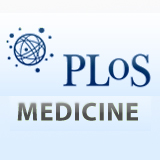
- Progress on the timely, valid, reliable, and comparable measurement of health indicators requires tools and instrument innovation; enhanced national capacity to collect, process, archive, and share data; norms and standards for indicator definitions and computation; multiple independent analyses of data; and effective translation of results into policy.
- Academia and the associated process of peer-reviewed publication and open debate should play the central role in the creation of new tools and instruments and in the rigorous analysis of existing data to yield the best possible assessments of key health indicators.
- The United Nations and World Bank have important roles to play in helping countries build capacity for data collection and analysis, setting norms and standards, and helping national decision-makers translate evidence into new policy directions.
This paper is part of a PLoS Medicine cluster of articles discussing the current state of global health estimates and debating the way into the future.
Related papers:
1. Byass P (2010) The Imperfect World of Global Health Estimates. PLoS Med 7: e1006. doi:10.1371/journal.pmed.1001006
2. Boerma T, Mathers C, Abouzahr C (2010) WHO and Global Health Monitoring: The Way Forward. PLoS Med 7: e373. doi:10.1371/journal.pmed. 1000373
3. Sankoh O (2010) Global Health Estimates: Stronger Collaboration Needed With Low- and Middle-Income Countries. PLoS Med 7: e1005. doi:10.1371/ journal.pmed.1001005
4. Graham W, Adjei S (2010) A Call for Responsible Estimation of Global Health. PLoS Med 7: 1003. doi:10.1371/journal.pmed.1001003